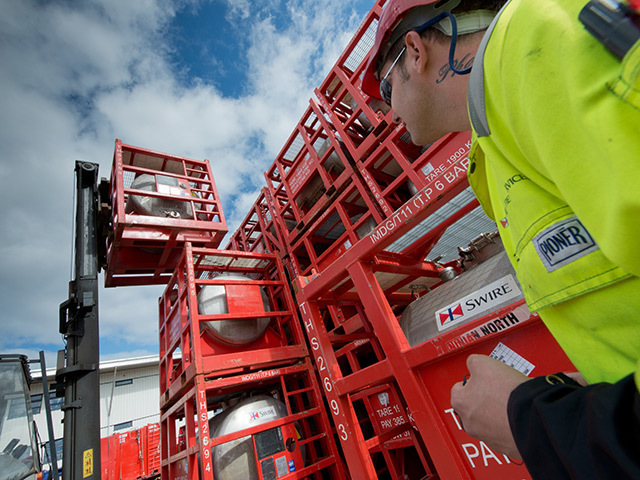
There’s nothing new about corporate graduate training schemes; some have been around for more than half a century. However, back in the 1960s and earlier they were rare, particularly in the UK.
Type the words “corporate graduate training scheme” into Google and it is not a leading American or European company that throws up at the top of the first page, it is an Asia-Pacific group with UK roots – Swire.
Click on “Why Swire” and the introduction says: “Not many companies can tell you in five words why you should join them. But with Swire, integrity, humility, endeavour, excellence and continuity are the values that are integrated into every facet of our work and embodied by every Swire employee. These values are the very reason why our employees join and stay at Swire.”
That’s clear enough, and I’d like to believe that this group does indeed live up to such values. For many people in the upstream offshore oil and gas industry the name Swire is familiar.
This is because, aside from aviation, property, agri-business and food-chain, and trading and industry, Hong Kong-headquartered Swire has a large maritime services portfolio, including a big fleet of offshore support vessels, plus offshore logistics hubs such as the one in Aberdeen.
But Swire is hardly among the first names to pop into the prospective grad trainee in the oil and gas industry. More likely, it will be BP or Shell or Amec or Wood Goup or Schlumberger and so-forth.
Here in the UK, among the most comprehensive and best-paid graduate induction/training schemes of any kind are operated by oil companies and key players within their supply chain.
Some are broad-based – this is particularly so for management trainees – while others, such as engineering and geoscience, tend towards being discipline-based. A really good programme will offer a mix of office and field-based training and run for up to three years with a decent salary.
Given the remarkable shortages more or less across the spectrum of disciplines that characterise upstream oil and gas, graduates can look forward to a reasonable starting salary. Baby lawyers can command as much as £40,000 – and that’s just for starters.
Grads with their heads screwed on will walk away from offers of unpaid internships. There is no excuse for such exploitation, not that it is prevalent in the North Sea industry.
An interesting twist is that some grads sign up to apprenticeships. But why, given that the classic apprenticeship tends to be the preserve of school leavers who decide to follow the trades route into the industry rather than read for a degree? The answer is not clear; but the route is clearly used by some.
Oil companies and supply-chain leaders actively trawl top universities for promising future talent, the focus being on final-year undergraduates and those who are about to complete a Masters. They have their favourites, like Heriot Watt, Strathclyde, UMIST (University of Manchester Institute of Science and Technology), Imperial College and Newcastle.
Aberdeen University and Robert Gordon are part of that milk round too, in their different ways. At Masters level, RGU Aberdeen Business School’s Oil and Gas MBA is particularly highly differentiated as less than a handful of universities worldwide offer such an MBA.
Are the companies good at marketing themselves to grads/undergrads? While some are undoubtedly excellent, others could do better. The Student Room website has an oil industry thread; it makes interesting and even shocking reading.
Recommended for you
